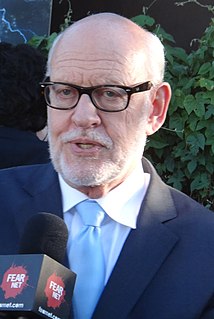A Quote by Albert Ellis
My rational emotive behavior therapy (REBT) was one of the very few therapies that was originated partly or largely because I wanted to be brief and efficient. And therefore right from the start I was active and directive. I tried to show people some central masturbatory core to their philosophy and to get them to work at changing it cognitively, emotionally and behaviorally.
Related Quotes
When you look at any experimental work not directly related to economics, but trying to test rational behavior in other ways, experiments have conspicuously failed to show rational behavior. Macro evidence certainly suggests deviations from rationality, but I don't want to say the rationality hypothesis is completely wrong. If you have any introspective idea or experimental idea about people's behavior, it seems to be incompatible with the really full scale rational expectations.
Even those who identify themselves as libertarians follow an overtly anti-rationalist philosophy, as even a brief acquaintance with the work of Friedrich Hayek should make clear. The argument against reason in this literature is straightforward: it is impossible for any individual to acquire enough reliable information to make a rational decision, any actions founded on rational thought will therefore be delusional, any attempts at reason should therefore regarded as dangerous, and all action should instead be guided by tradition.
I studied philosophy in school, became disgruntled by the fact that it was a way to have a very interesting conversation with very few people about very few things in very narrow terms and yet still believed (and still believe today) that there was something that I was getting myself involved in when I said I wanted to study philosophy.
I think that there is a tragic misfit at the core of me, and I've just done a lot of work on myself. I love a good self-help book; I've read a ton of them. I love self-help seminars and therapy and all that. I think that probably, at my core, if I had done no work on myself, I would probably be Laura from The Mysteries Of Laura, but I worked hard to be a more stable person because that's what I wanted out of my life.
Philosophy is not a body of knowledge to impart to someone, that's why reading philosophy books isn't always the best way of learning philosophy. Philosophy is really more the process of rational engagement, rational reflection with a diversity of views and ideas and opinions and trying to sort of reason your way through to a more reflective position. I think if you look at it that way, philosophizing is to some extent some small way a part of almost everyone's lives although they don't recognize it as such and a lot of people are embarrassed about it.
When people ask me what philosophy is, I say philosophy is what you do when
you don't know what the right questions are yet. Once you get the questions
right, then you go answer them, and that's typically not philosophy, that's
one science or another. Anywhere in life where you find that people aren't
quite sure what the right questions to ask are, what they're doing, then,
is philosophy.
The government ought to help out, because the average citizen can't go out and be doing reviews of the scientific literature. And focus on the processes that have low side effects and good long-term outcomes. Right now you're going to find those in the psychosocial area, in the therapy area, in the empirically supported treatments such as ACT or cognitive behavior therapy, behavior therapy. And go there first rather than going to the pill bottle as if it's going to be the end of your journey. Very often it's only going to help, and even only to a minor degree, and more is going to be needed.
Antidepressant medications, you still have some depressive thoughts. Antipsychotic medications, you still have some psychotic symptoms for the vast majority of the people taking them. But it gives them a little separation, and it doesn't control his behavior as much when you have a sad feeling, difficult thought, an odd perceptual experience. We can teach people those exact skills in therapy, you get longer-term benefits and without the side effects. So don't be sold just because a commercial interest wants to sell you things.



































